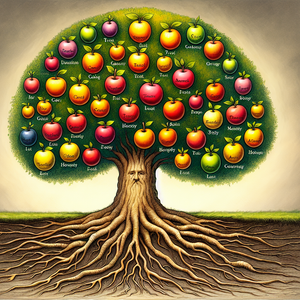The Forgotten Voter: Exploring the Dilemmas of Disenfranchised Communities

The roots of disenfranchisement in the United States stretch deep into its history, beginning with the founding of the nation. Originally, voting rights were predominantly reserved for white, land-owning men. Over time, significant amendments to the Constitution and a series of civil rights movements expanded the franchise to include women and racial minorities. However, even with these advancements, many disenfranchised groups continue to encounter formidable obstacles in accessing their voting rights. The Voting Rights Act of 1965 was a landmark piece of legislation designed to eradicate racial discrimination in voting. Its provisions significantly enhanced voter access and representation for marginalized communities. However, subsequent Supreme Court decisions, most notably Shelby County v. Holder in 2013, weakened critical protections offered by the Act. This judicial regression has led to a resurgence of voter ID laws and other restrictive measures that disproportionately impact minority and low-income communities, perpetuating a cycle of disenfranchisement.
Systemic Barriers to Voting
Disenfranchised communities face an array of systemic barriers that hinder their ability to participate in elections. One of the most significant obstacles is voter ID laws, which mandate that individuals present specific forms of identification to vote. Many low-income individuals and people of color may lack the required IDs due to financial constraints, transportation issues, or bureaucratic hurdles, effectively disqualifying them from participating in the electoral process. Gerrymandering also presents a significant challenge. This practice involves drawing electoral district boundaries in a way that favors a particular political party, thereby diluting the voting power of marginalized communities. By manipulating district lines, political parties can minimize the representation of certain demographics, leading to electoral outcomes that do not accurately reflect the will of the people. Moreover, the closure of polling places in predominantly minority neighborhoods exacerbates the issue. Reduced accessibility, long lines, and limited voting hours create disincentives for individuals to cast their votes. The combination of these factors results in a substantial voter turnout gap, where disenfranchised communities are systematically underrepresented in electoral outcomes, particularly in high-stakes presidential elections.
Potential Reforms for Inclusion
To address the challenges of disenfranchisement, a multifaceted approach is necessary, encompassing legislative, educational, and community-driven initiatives. One potential reform is the reinstatement and strengthening of the Voting Rights Act. By reinforcing protections against discriminatory practices, we can create a more equitable electoral landscape. In addition to legislative changes, comprehensive voter education campaigns can empower disenfranchised communities. By providing information on voting rights, registration processes, and the importance of civic engagement, these campaigns can help mobilize individuals who might otherwise feel disconnected from the electoral process. Grassroots organizations play a crucial role in this effort, advocating for the rights of disenfranchised communities and facilitating their active participation in elections. Furthermore, states can implement automatic voter registration, which would streamline the registration process and ensure that eligible citizens are registered to vote without unnecessary barriers. This approach has been adopted in several states and has shown promise in increasing voter participation, particularly among disenfranchised populations.
The dilemmas faced by disenfranchised communities in presidential elections pose a significant challenge to the democratic process in the United States. By understanding the historical context of disenfranchisement and recognizing the systemic barriers that persist today, we can begin to advocate for meaningful reforms that ensure every voice is heard. Empowering disenfranchised communities is not merely a matter of justice; it is essential for the health and vitality of our democracy. As we move forward, it is imperative to prioritize inclusivity and strive to create a democratic system that truly reflects all citizens. By fostering a society where every vote counts, we can ensure that the principle of "one person, one vote" is not just an ideal but a reality for all Americans. The path to a more equitable democracy may be fraught with challenges, but it is a journey worth undertaking for the sake of our collective future.
Voting Rights Advocate
American Civil Liberties Union (ACLU), League of Women Voters, local non-profits focused on civil rights
Core Responsibilities
Develop and implement advocacy strategies to promote voting rights legislation at local, state, and national levels.
Conduct outreach and education initiatives to inform disenfranchised communities about their voting rights and available resources.
Collaborate with grassroots organizations and coalitions to mobilize voters and increase participation in elections.
Required Skills
Strong understanding of electoral law and voting rights issues.
Excellent communication and public speaking skills for advocacy and community engagement.
Experience in community organizing or political campaigning.
Data Analyst - Electoral Research
Research institutions, political think tanks, government agencies, or non-profit organizations focused on electoral integrity
Core Responsibilities
Analyze voting data to identify trends and disparities in voter turnout among different demographic groups.
Prepare reports and visualizations to support advocacy efforts for policy changes aimed at improving voter access.
Collaborate with researchers and policymakers to provide data-driven insights on electoral participation.
Required Skills
Proficiency in statistical analysis software (e.g., R, Python, or SQL) and data visualization tools (e.g., Tableau).
Strong analytical and critical thinking skills to interpret complex datasets.
Experience in social science research methods or electoral studies.
Civic Engagement Coordinator
Community organizations, non-profits, local government offices, and educational institutions
Core Responsibilities
Design and implement programs to educate and mobilize voters, particularly in underrepresented communities.
Organize events such as town halls, workshops, and voter registration drives to encourage civic participation.
Build partnerships with local organizations to expand outreach efforts and resources available to voters.
Required Skills
Proven experience in community organizing and event planning.
Strong interpersonal skills to effectively engage with diverse populations.
Familiarity with social media and digital marketing strategies to promote civic initiatives.
Policy Analyst - Voting Legislation
Government agencies, policy think tanks, non-profit organizations focused on electoral reform
Core Responsibilities
Research and analyze legislative proposals related to voting rights and electoral reform.
Provide policy recommendations based on empirical evidence and best practices to improve voter access.
Monitor and evaluate the impact of existing laws on disenfranchised communities and report findings to stakeholders.
Required Skills
Strong research skills with an emphasis on policy analysis and legislative processes.
Excellent writing abilities for drafting reports, briefs, and policy recommendations.
Understanding of the political landscape and advocacy strategies related to voting rights.
Community Outreach Specialist
Non-profit organizations, local government agencies, and civic engagement initiatives
Core Responsibilities
Develop and execute outreach programs to engage disenfranchised communities in the electoral process.
Conduct informational sessions on voting rights, registration processes, and upcoming elections.
Foster relationships with community leaders and influencers to amplify outreach efforts.
Required Skills
Strong communication skills, both verbal and written, to effectively convey information to diverse audiences.
Experience in community relations, public engagement, or similar fields.
Cultural competency and sensitivity to the unique challenges faced by marginalized communities.


